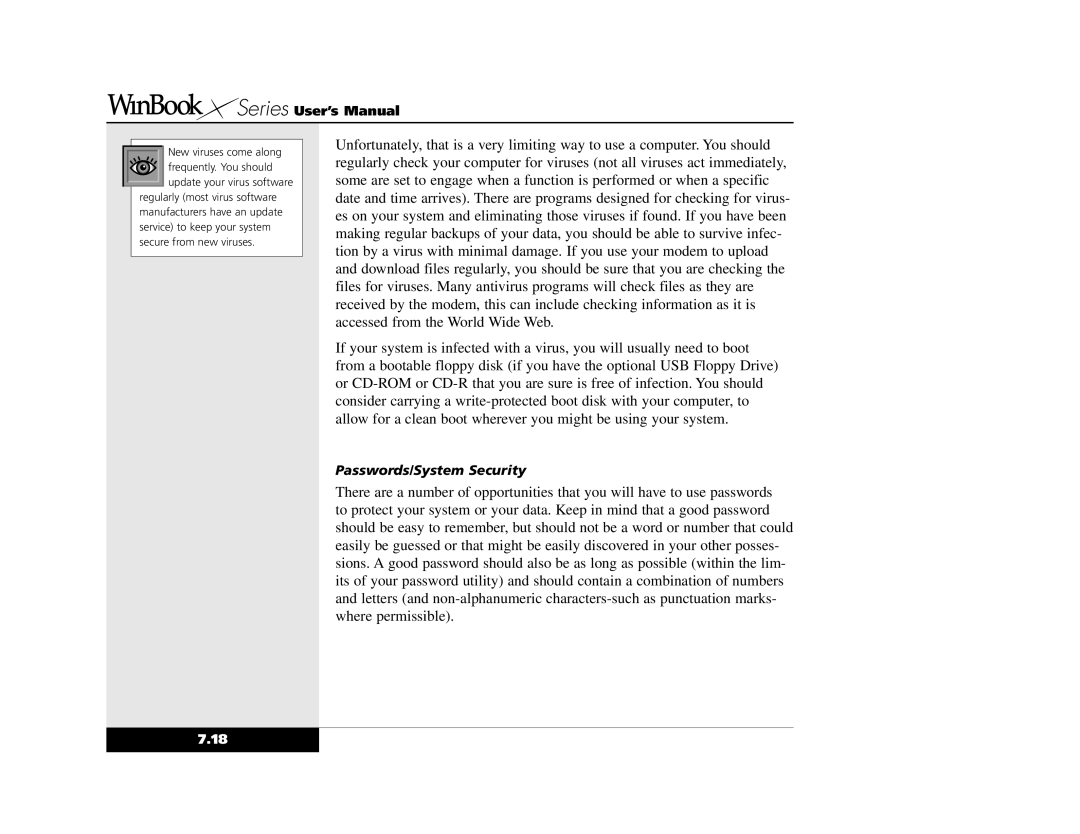





 Series User’s Manual
Series User’s Manual
New viruses come along frequently. You should
update your virus software regularly (most virus software manufacturers have an update service) to keep your system secure from new viruses.
Unfortunately, that is a very limiting way to use a computer. You should regularly check your computer for viruses (not all viruses act immediately, some are set to engage when a function is performed or when a specific date and time arrives). There are programs designed for checking for virus- es on your system and eliminating those viruses if found. If you have been making regular backups of your data, you should be able to survive infec- tion by a virus with minimal damage. If you use your modem to upload and download files regularly, you should be sure that you are checking the files for viruses. Many antivirus programs will check files as they are received by the modem, this can include checking information as it is accessed from the World Wide Web.
If your system is infected with a virus, you will usually need to boot from a bootable floppy disk (if you have the optional USB Floppy Drive) or
Passwords/System Security
There are a number of opportunities that you will have to use passwords to protect your system or your data. Keep in mind that a good password should be easy to remember, but should not be a word or number that could easily be guessed or that might be easily discovered in your other posses- sions. A good password should also be as long as possible (within the lim- its of your password utility) and should contain a combination of numbers and letters (and
7.18
